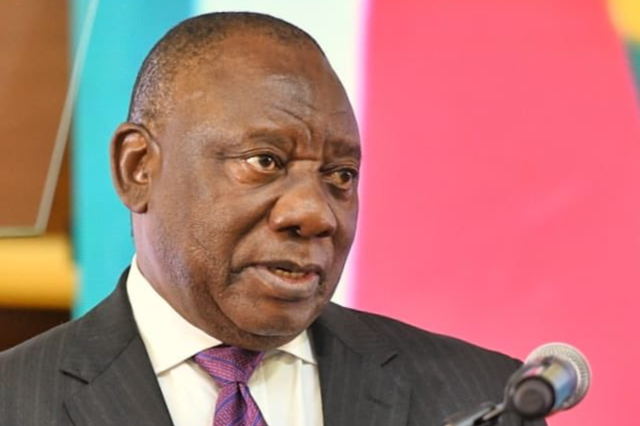Sharm el Sheikh – South Africa’s president, whose coal-dependent country is among the world’s top polluters, on Tuesday criticised international funders for making it difficult for poorer nations to access aid to fight climate change.
Support from multilateral organisations “is out of reach of the majority of the world’s population due to lending policies that are risk-averse and carry onerous costs as well as conditionalities,” Cyril Ramaphosa told the UN COP27 climate summit.
Addressing the meeting in Egypt’s Sharm el-Sheikh, he said “funding institutions need to transform … the way in which they fund projects that will enable us to develop with regard to climate change”.
According to a UN-backed report released on Tuesday, developing countries and emerging economies need investments well beyond $2 trillion annually by 2030 if the world is to stop the global warming juggernaut.
ALSO READ | Smallholder farmers in Africa and South Asia get $1.4billion climate boost
South Africa, one of the world’s top 12 polluters, last week revealed that it will require about $98 billion over the next five years to transition to net zero.
Last year, at the COP26 in Glasgow, Pretoria secured $8.5 billion in loans and grants from a group of rich countries towards its green transition – very little of which is grant funding.
“We found in the end that only 2.7 percent was grant money, other portions were concessional loans …offered by development funding institutions as well as normal commercial institutions,” Ramaphosa told a news conference after his address.
He called on rich nations to honour their commitments “because failing to honour these commitments breaks trust and confidence in the process”.
“More industrialised countries need to live up to the commitments they have made, knowing fully well that they have, through the development of their own economies, contributed a great deal more to the damage that many countries on our continent now labour under,” he told reporters.
ALSO READ | Rich nations greenlight South Africa’s coal transition plan
The head of state assured the summit that South Africa, which generates about 80 percent of its electricity through coal, was on course to retire several of its ageing coal-fired power plants in the next eight years.
The World Bank last week granted South Africa $497 million to decommission one of its largest coal-fired power plants and promote renewable energy.
“Because South Africa already carries a fairly sizeable loan burden that it has to service … we require more grant funding” Ramaphosa said.
South Africa will require at least $500 billion dollars to achieve carbon neutrality by 2050, according to the bank.
Follow African Insider on Facebook, Twitter and Instagram
Source: AFP
Picture: Twitter/@CyrilRamaphosa
For more African news, visit Africaninsider.com


